Open Lab Notebook
Welcome to my Open Lab Notebook! This space is where I collect and document my practices, theories, and explorations of Field Neuroscience, or the non-invasive study of nervous systems in situ.
I began this work in collaboration with the Intelligent Systems Lab, where I was a PhD student advised by Dr. Adam R. Kampff. The Intelligent Systems Lab studied how nervous systems “in the wild” (as opposed to in the laboratory) are robust and flexible enough to deal with unexpected situations. Within this context, I developed a framework for non-invasively studying nervous systems in environments and contexts beyond the traditional laboratory.
You can read the full-text of my doctoral thesis here.
I am now interested in re-examining existing neuroscience data with a new lens – that our nervous systems are storytelling engines that our cells build, develop, and evolve to coordinate behavior throughout our body collective. To learn more, please check out my current research proposal.
Current Research Interests and Goals
My top priorities when conducting research are:
-
to further develop theoretical frameworks and experimental methods that can support field neuroscience, or the humane study of nervous systems in situ;
-
to critically analyze the role of modern neuroscience in perpetuating current systems of oppression, and to redirect the knowledge, wisdom, and insights derived from modern neuroscience towards radical collective liberation;
-
to nurture a culture of collaboration, trust, and rigorous imagination; and
-
to engage with historical context and in questioning the status quo, both in and out of science.
I am currently interested in developing and collaborating on the following ideas and projects:
-
An engaging, accessible, and multi-lingual neuroscience primer (aka a succinct “big picture” introduction) that can develop shared vocabularies between experts coming together from significantly diverse backgrounds – not just diverse in academic discipline, but also in cultural heritage, language, geographical location, socio-economic situations, learning and communication styles, lived experiences of marginalization, etc.
-
Non-invasive replication studies of classic laboratory neuroscience, psychology, and psychophysics experiments with larger, more diverse sample sizes and with participants who are neither captive nor coerced;
-
Sustainable long-term, multi-generational, free-choice learning communities;
Writings
Danbee Kim. ``Are cephalopods making a comeback in neuroscience?’’. BioTechniques. 22 Jun 2022.
Danbee Kim, Kendra Buresch, Roger Hanlon, Adam R. Kampff. ``An experimental method for evoking and characterizing dynamic color patterning of cuttlefish during prey capture’’. Journal of Biological Methods, 9.2 (2022):e161. DOI: 10.14440/jbm.2022.386.
``Neuroscience Does Design: What the Brain’s Architecture Can Teach Architects’’. Co-written with Adam R. Kampff. Published by Architectural Design, 2020. DOI: 10.1002/ad.2637.
“Why I refuse to do animal testing in my science career” Published by MassiveSci.com, 2018, for the 200th anniversary of Mary Shelley’s first publication of Frankenstein.
“HIVE Tracker: a tiny, low-cost, and scalable device for sub-millimetric 3D positioning” Co-written with Darío R. Quiñones Colomer, Gonçalo Lopes, and Cedric Honnet. Published by Augmented Human 2018. DOI: 10.1145/3174910.3174935.
“How theater, startup culture, and business history helped us become better neuroscientists”. Co-written with Gonçalo Lopes. Published by MassiveSci.com, 2017.
“Does modern neuroscience really help us understand behavior?” Co-written with Gonçalo Lopes. Published by MassiveSci.com, 2017.
Teaching
Teacher for Neuronautas, a field neuroscience summer camp for Portuguese youth. Funded by the Academias Gulbenkian do Conhecimento, 2019 - 2022.
Teacher for the Appalachian Institute for Creative Learning: since January 2010.
Teaching Assistant for Intro to Techniques in Neuroscience. Champalimaud Neuroscience Program, January 2014.
Co-organizer for Bridging Neuroscience and Embodiment: The Many Bodies of Embodied Cognition. Champalimaud Neuroscience Program, Fall 2013 Advanced Course: October 28 - November 1, 2013.
Presentations
On the aims and methods of Field Neuroscience: Non-invasive techniques for studying nervous systems in natural settings. Doctoral defense presented on December 17, 2020.
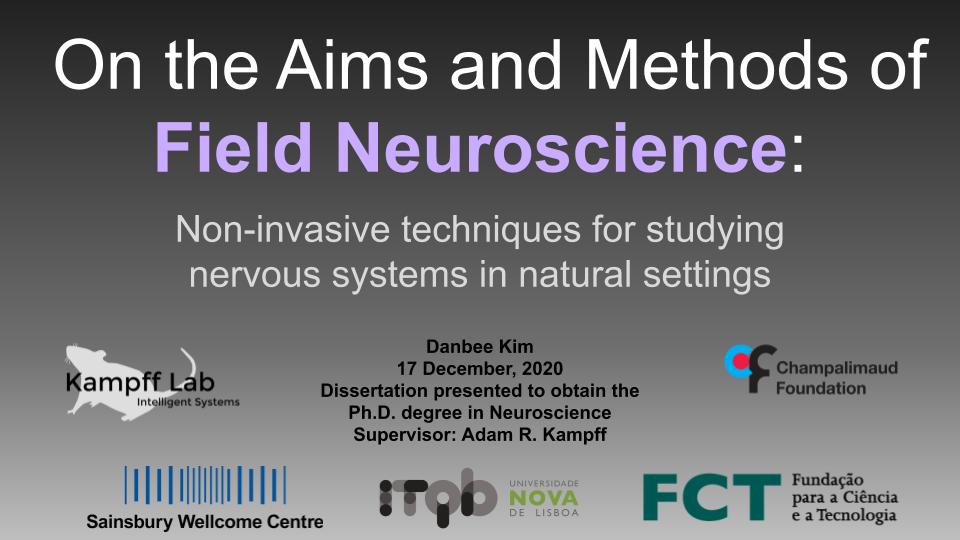
On the aims and methods of Field Neuroscience: Non-invasive techniques for studying nervous systems in natural settings. This is the presentation I gave for my doctoral defense; speaker notes contain my verbal script.
On the aims and methods of Field Neuroscience: increasing the diversity and quantity of subjects in behavioural neuroscience studies Progress report presented to my thesis committee members and INDP program director on June 11, 2019.
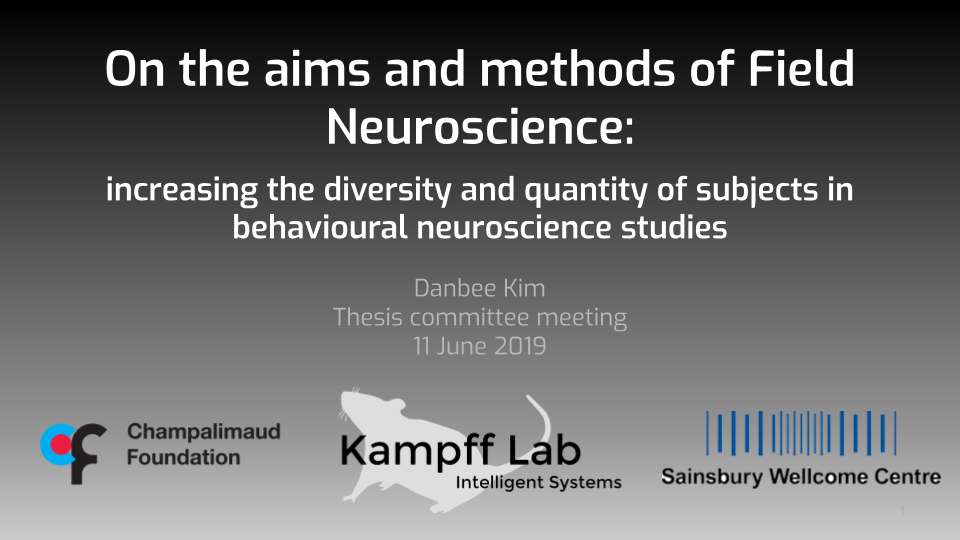
On the aims and methods of Field Neuroscience: increasing the diversity and quantity of subjects in behavioural neuroscience studies. This presentation presents the current status of neuroscience projects that will be included in my final thesis write-up.
What is Behaviour? Presented at Session 2 of Neuronautas, a neuroscience enrichment program for Portuguese high-schoolers, funded by Academias Gulbenkian Conhecimento.
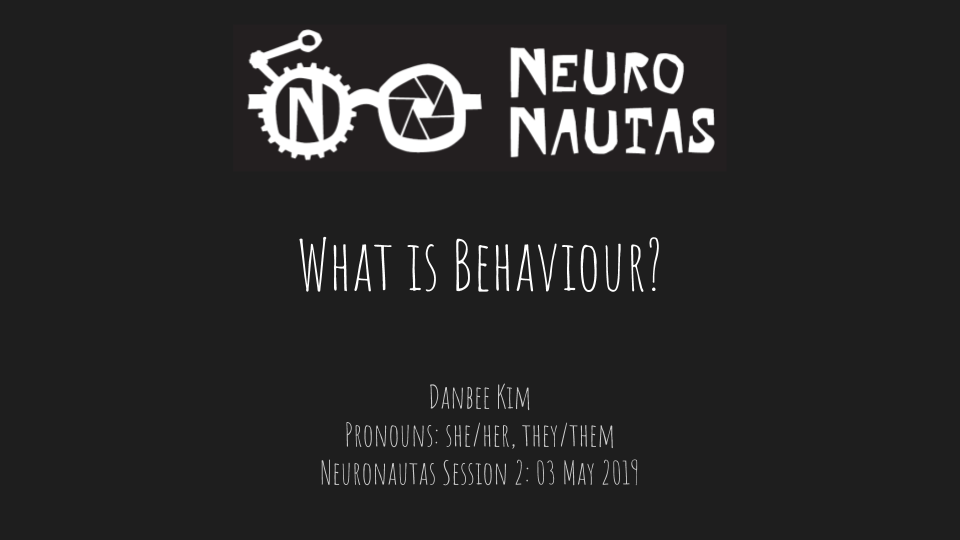
Why do we care about behaviour? What is ‘behaviour’? How do we test behaviour? This is a loaded word for neuroscience!
An Introduction to Field Neuroscience Presented at Session 1 of Neuronautas, a neuroscience enrichment program for Portuguese high-schoolers, funded by the Academias Gulbenkian Conhecimento.
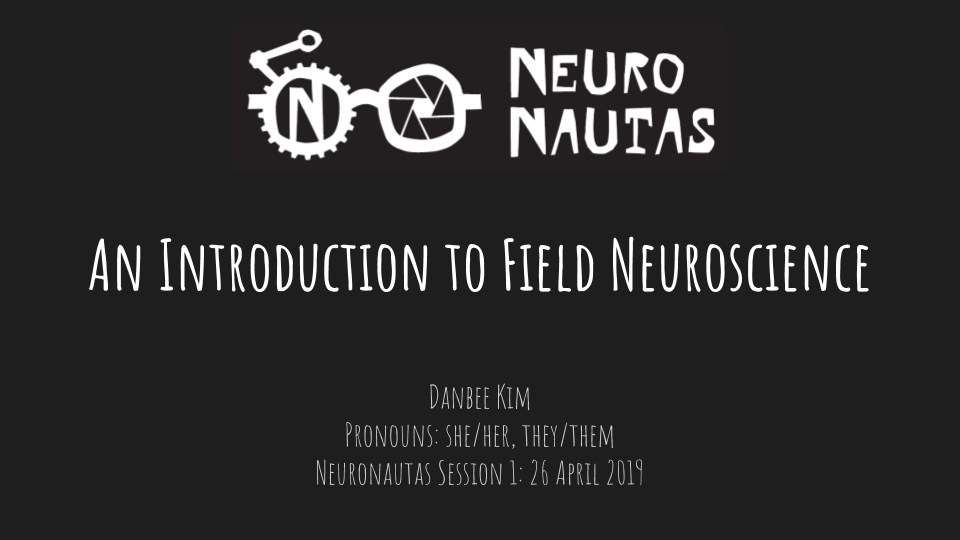
What is modern neuroscience? What are some of the core philosophical and methodological challenges with which modern neuroscientists must grapple? How can Field Neuroscience help us face those challenges?
Goals of Neuroscience as a Field Co-presented with Joana Soldado Magraner and Francesca Greenstreet at the SWC AlternaTea Hour on Oct 26, 2018.
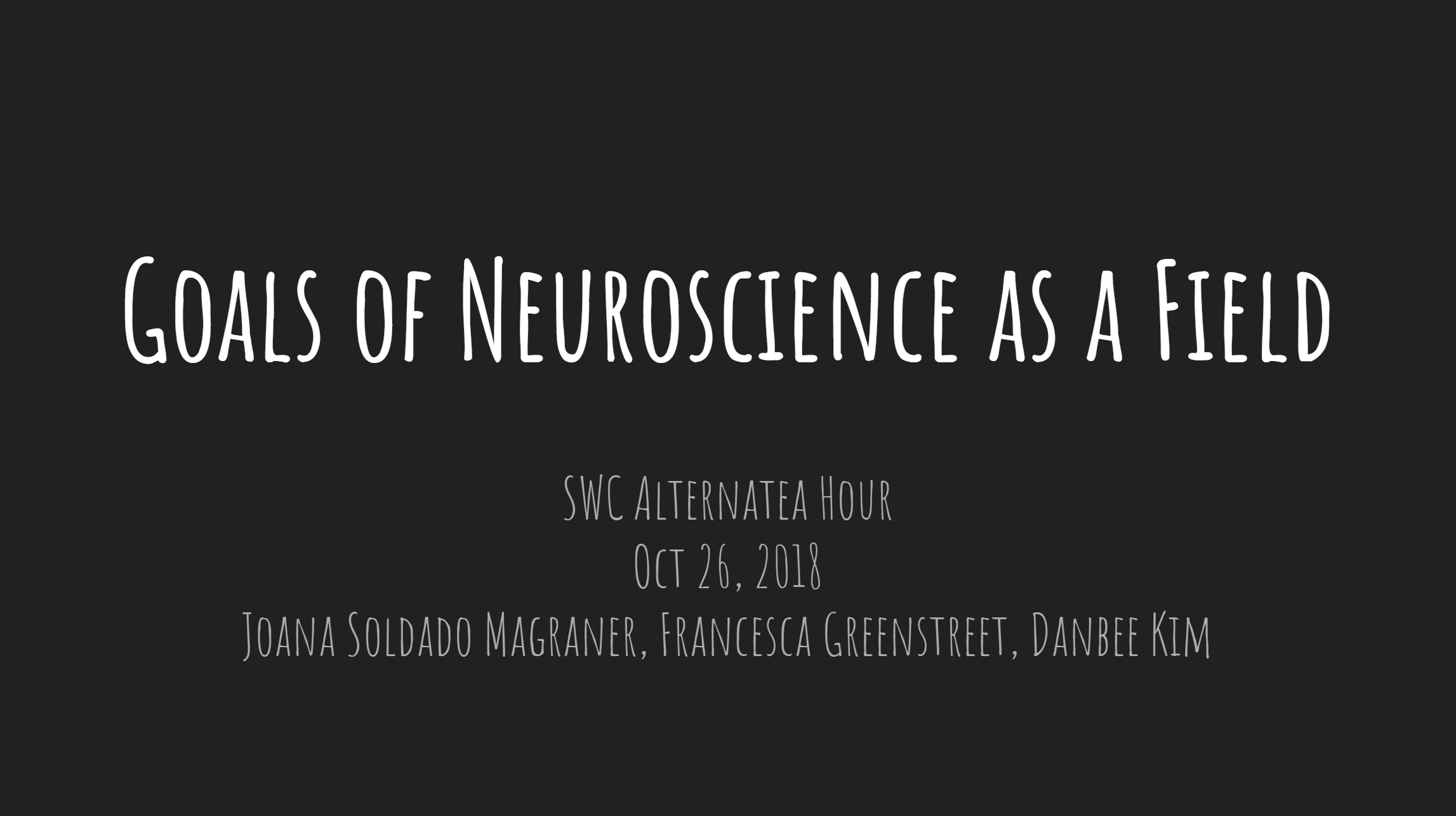
At the SWC AlternaTea Hour event on Oct 26, 2018, the SWC community discussed the utility of shared goals as a field, and came up with some questions that we would like to see our field make a unified effort to answer. Joana Soldado Magraner, Francesca Greenstreet, and I contextualized our discussion with the presentation linked above; see the final slide for the questions we came up with that evening!
Mind Full of Music: The Neuroscience of Music “In The Wild” Presented at Orchestrating the Brain, a 2018 FitzFest event hosted by the Sainsbury Wellcome Centre and created in collaboration with April Cashin-Garbutt, SWC Communications Manager, and Dan Bates, Artistic Director of FitzFest.
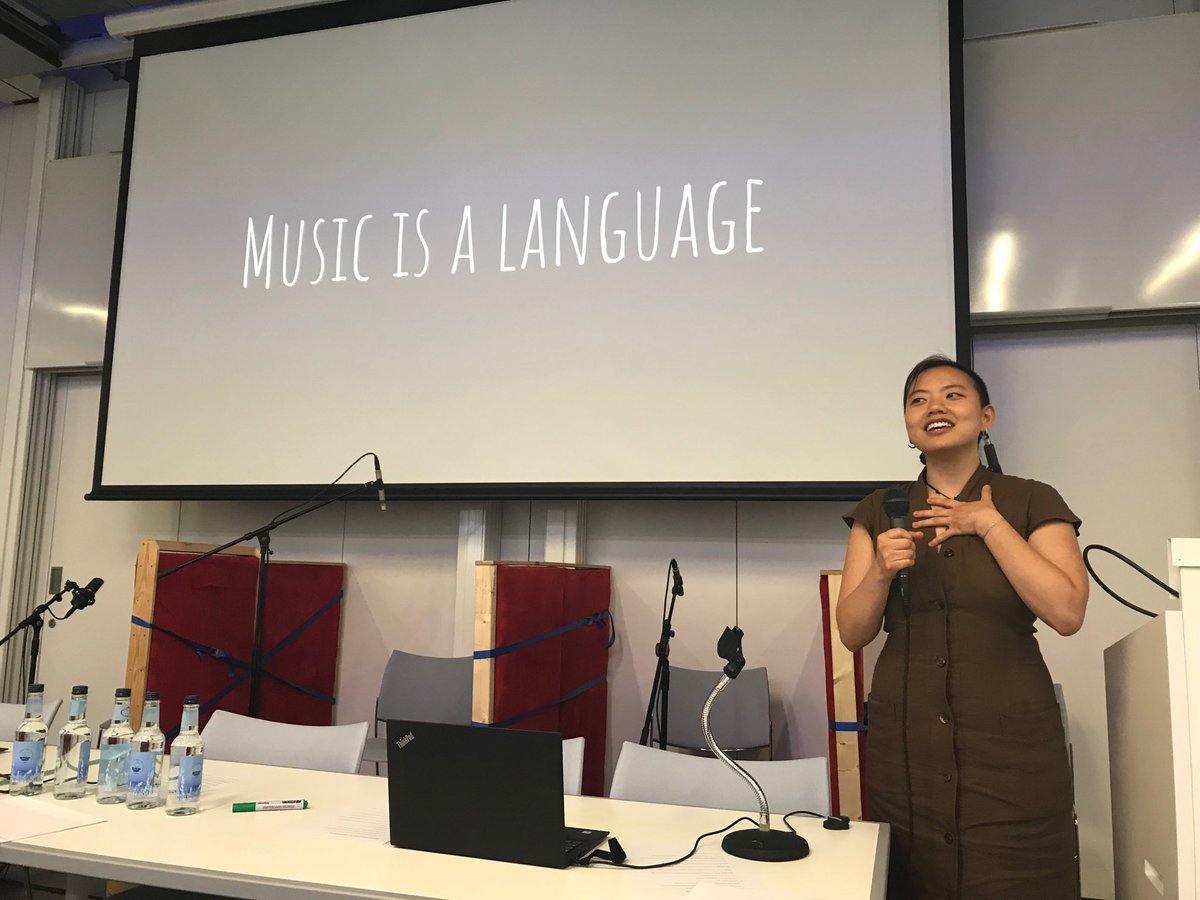
What is music? When do you listen to music? Why do you listen to music? For me, music is a language; music is coordination; music is participation; and music is personal. Photo credit: April Cashin-Garbutt.
“How Cuttlefish Play With Light” Presented at the UCL International Day of Light celebration on May 15, 2018.
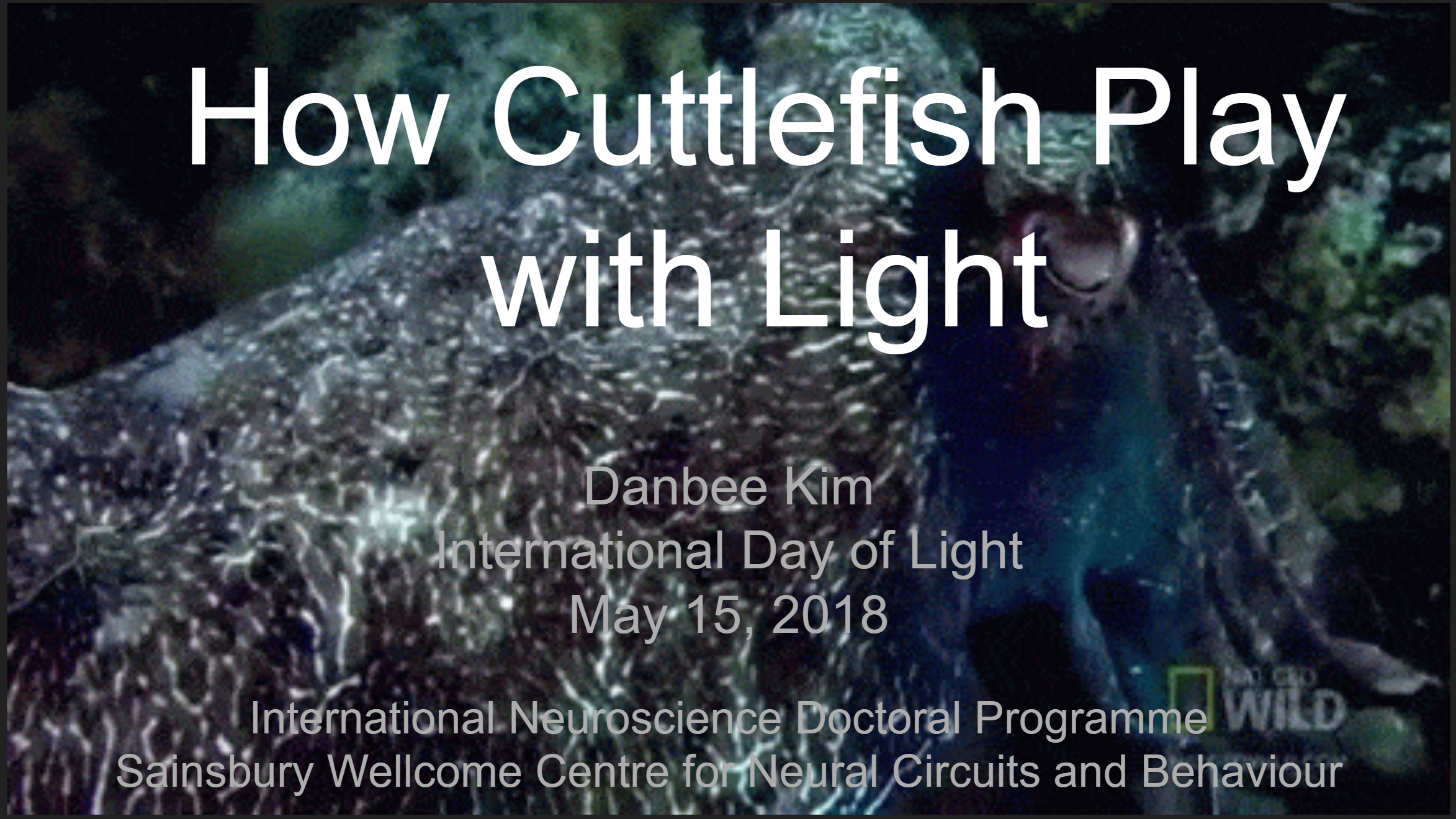
I talked about how cuttlefish see and actively camouflage themselves in their marine home environment.
“Validating Neuroscience Experimental Paradigms Across Species” Presented at a seminar at the N Center of Sungkyunkwan University on February 12, 2018.
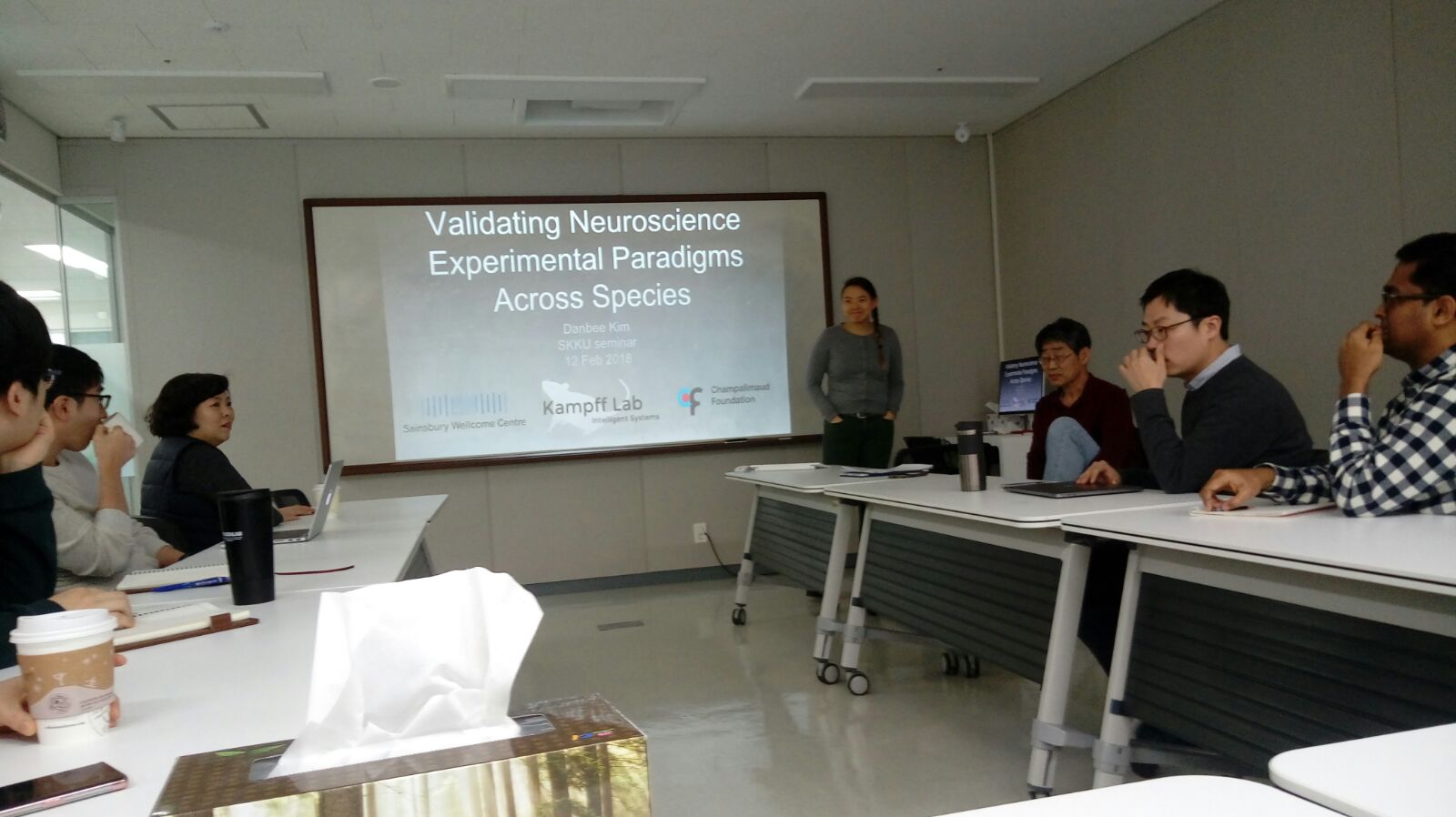
Image credit to Jinwon Kim
“The Power to explore, test, and realize your scientific fantasies” Presented at the 2017 Champalimaud Centre for the Unknown Student Retreat in Mafra, Portugal.
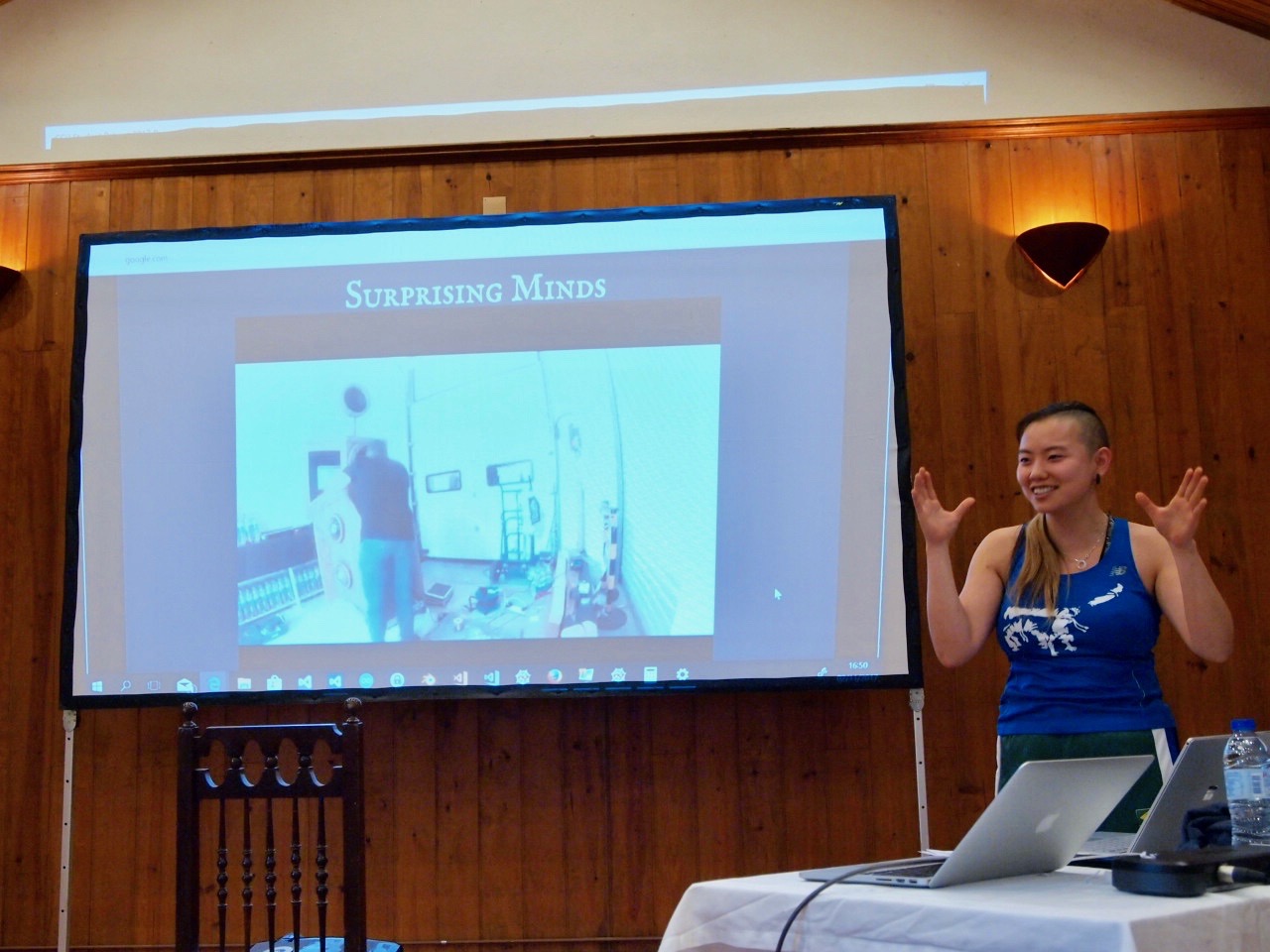
Image credit to Gonçalo Guiomar
“The Cuttle Shuttle: Behavior and Learning in Predatory Sepia officinalis (Cephalopoda)” Presented at the 2017 CephsInAction & CIAC meeting “Cephalopod Science from Biology to Welfare”, Heraklion, Crete.
“What can we learn about brains by studying the movements of bodies?” Presented at the opening plenary session of the 2o Congresso Nacional de Psicomotricidade in Vila Real, Portugal, 2016.
Videos
I was interviewed after co-hosting and speaking at Orchestrating the Brain, a 2018 FitzFest event hosted by the Sainsbury Wellcome Centre and created in collaboration with April Cashin-Garbutt, SWC Communications Manager, and Dan Bates, Artistic Director of FitzFest. Produced by Jake Fairnie and April Cashin-Garbutt.
I was interviewed for a series of short video documentaries about neuroscientists at the Sainsbury Wellcome Centre, Francis Crick Institute, and King’s College. Produced by Jake Fairnie, Edward Bracey, and April Cashin-Garbutt.
I was asked to describe on-camera the research we do at the Sainsbury Wellcome Centre for Neural Circuits and Behaviour in this short video introduction. Filmed and edited by Barry J Gibb.
In this video, I draw and narrate an explanation of the research goals and interests of the Intelligent Systems lab using only the top “ten-hundred” words in English.
Live Performances
On 24 May, 2019, I hosted a Dear Neuroscience event focused on Touch and Proprioception, working with local performers, crafters, and clinicians to connect neuroscience research to our daily lives. The event was funded by a UCL Train and Engage Fellowship, and this mini-video documentary was filmed and produced by Jake Fairnie.
Soapbox Science, London 2018: Another event at which I did some “science busking”, this time along the South Bank of the Thames!
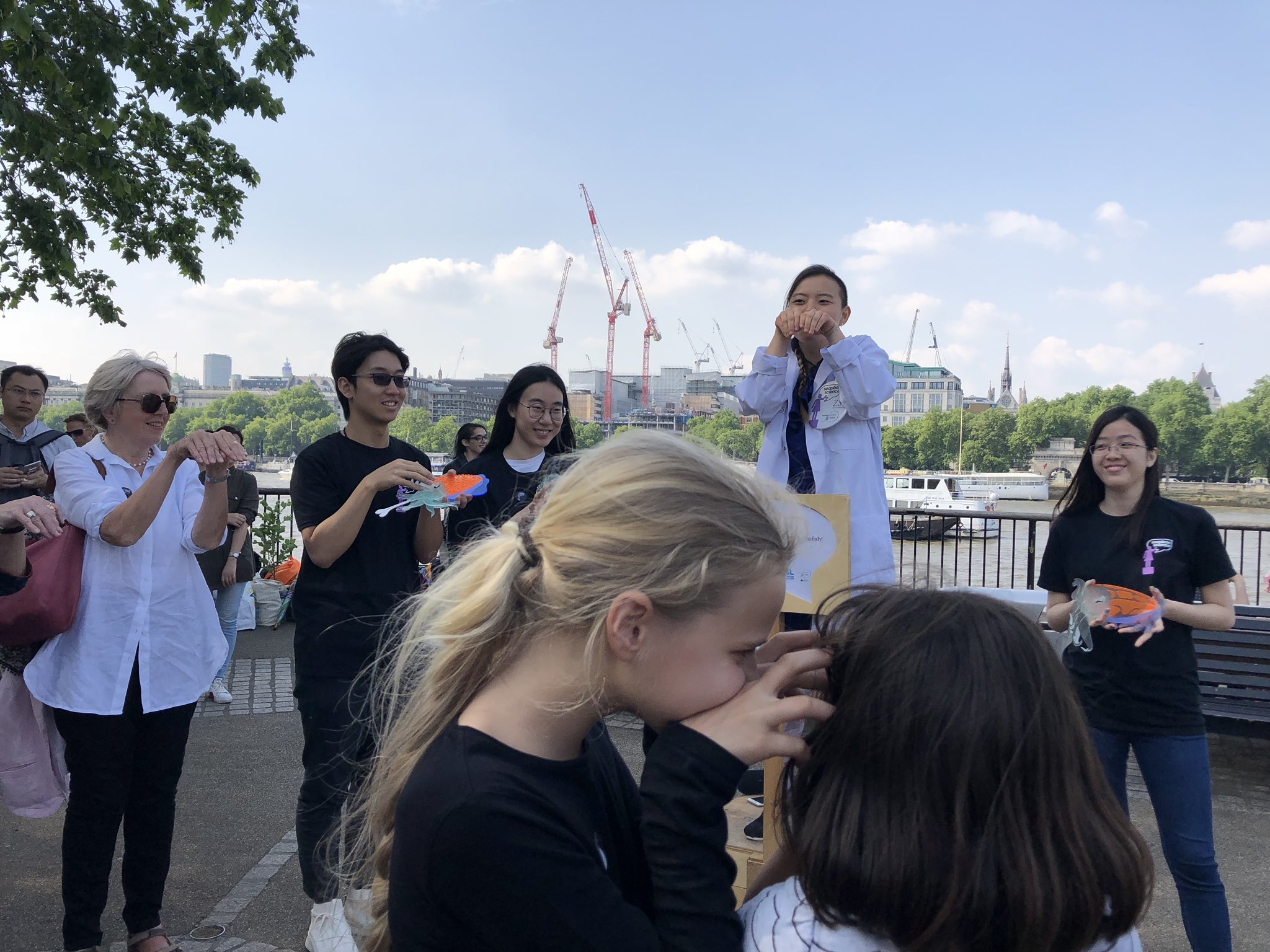
I talked about cuttlefish and how they relate to my PhD research on a lovely Saturday afternoon, while standing on a soapbox along the South Bank of the Thames! We got into the nitty gritty of cuttlefish hunting behaviour with the help of laser-cut plastic models (made with assistance from Lory Calcaterra, and seen in the photo above held in the hands of my lovely volunteer assistants) and an original song and dance (which is being performed in the above photo by my lovely audience)! Photo credit: Chanuki Seresinhe
Wellcome Collection Friday Late Spectacular: Your Reality is Broken: A “science busking” gig on Friday, 01 December 2017, where I spoke to the general public about my research while wandering the Wellcome Trust Collection.
“Pilot Data, an Aronauts EP”: An original set of science songs performed at the 2017 Live Music Symposium at the Francis Crick Institute.
Building Bridges project: A science outreach project at the London Science Museum where I spoke to groups of visiting primary school children about my research. Spring 2017.
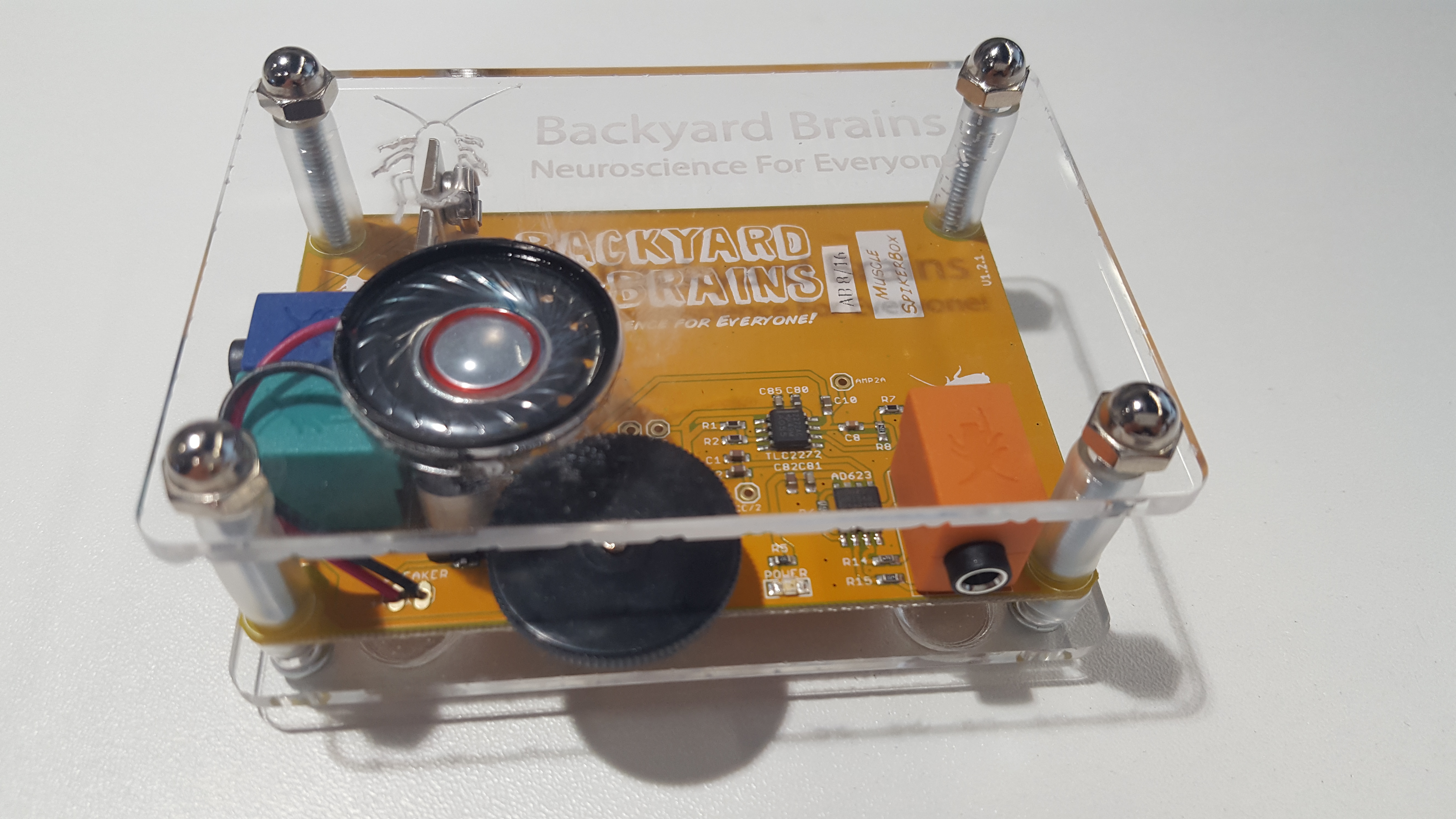
In the spring of 2017, I spoke to primary school children about my research, with the help of this pocket electrophysiology box (by Backyard Brains)
Projects
Below is documentation of my thesis work, in various stages of polish. More thoughts can be found in the “BrainPlay” section of this website.
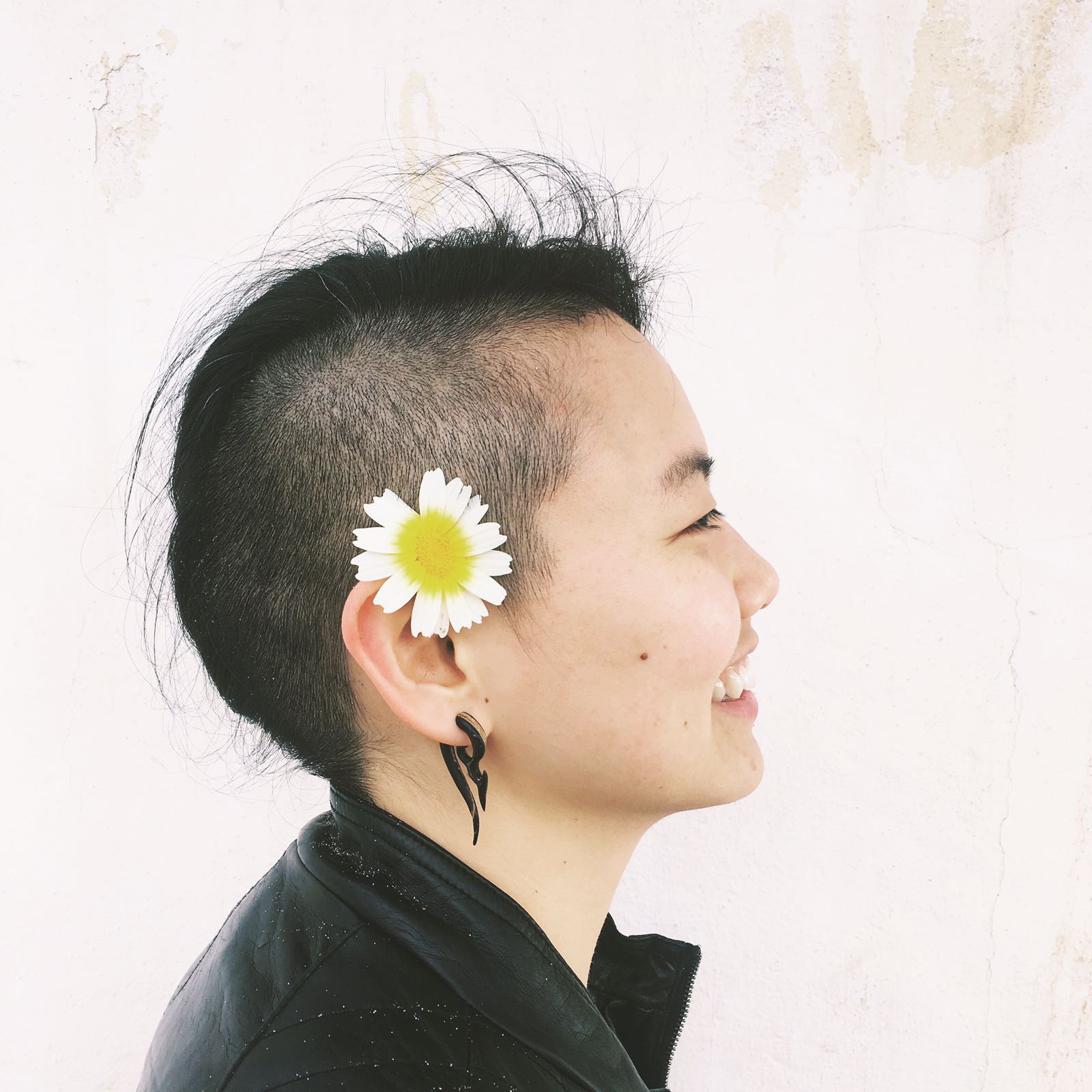
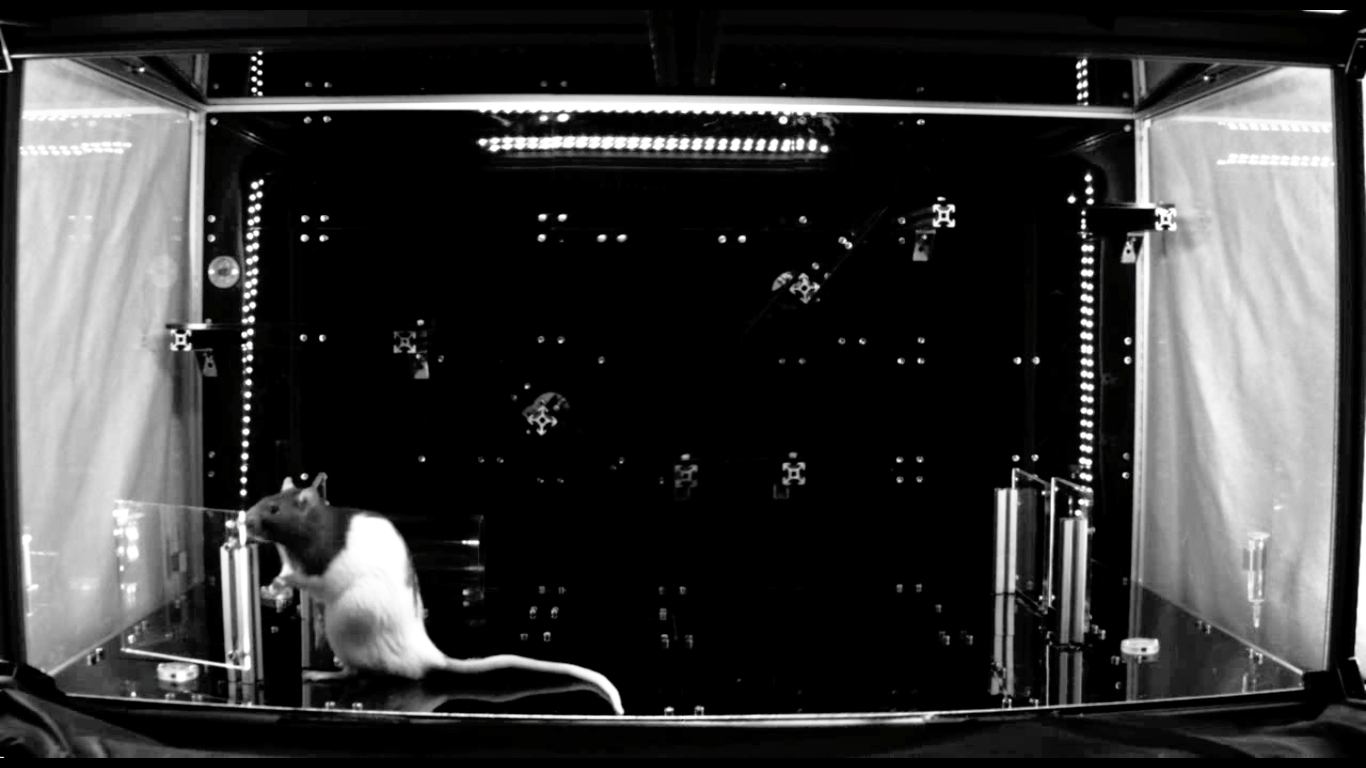
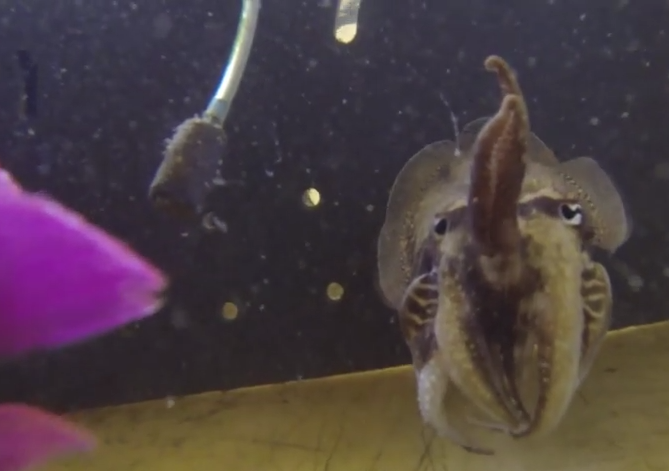
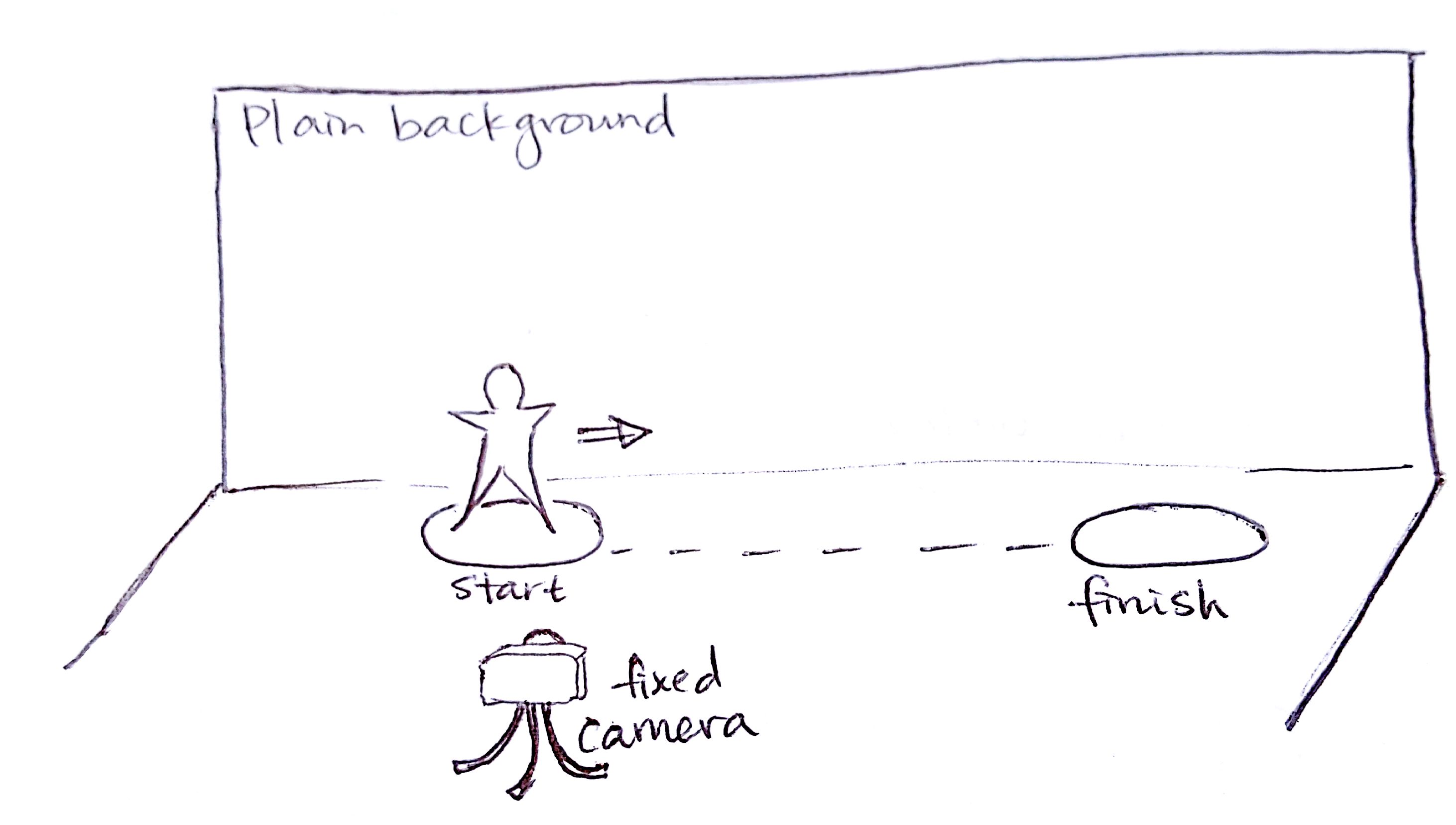
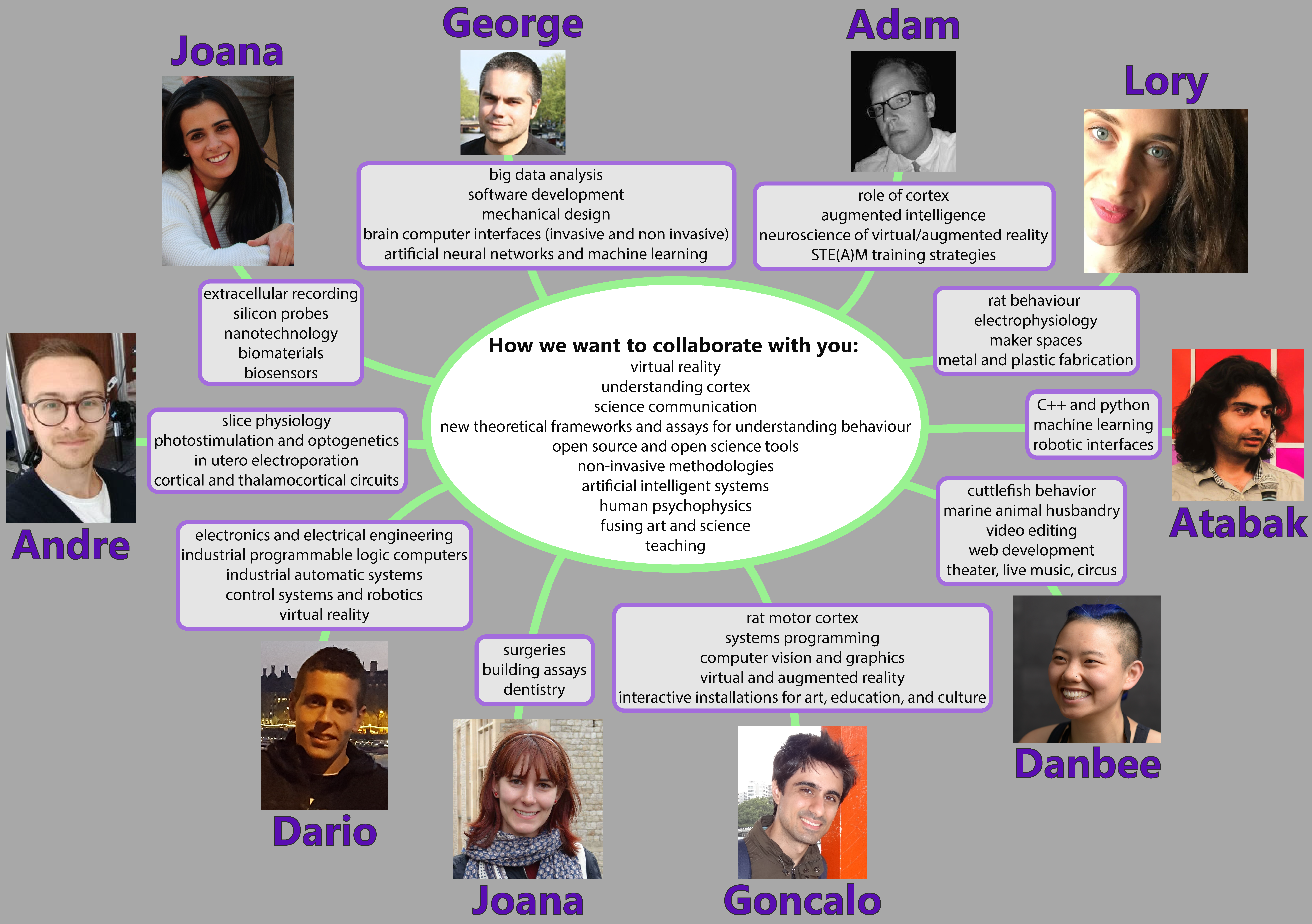
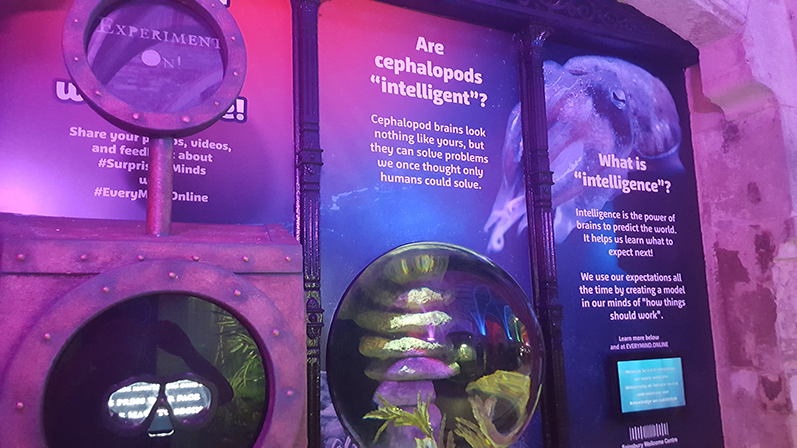
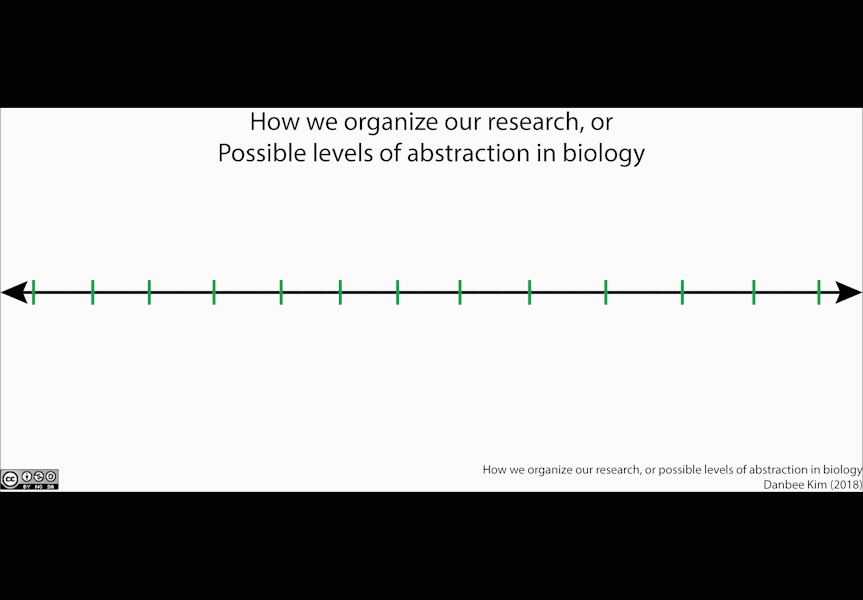
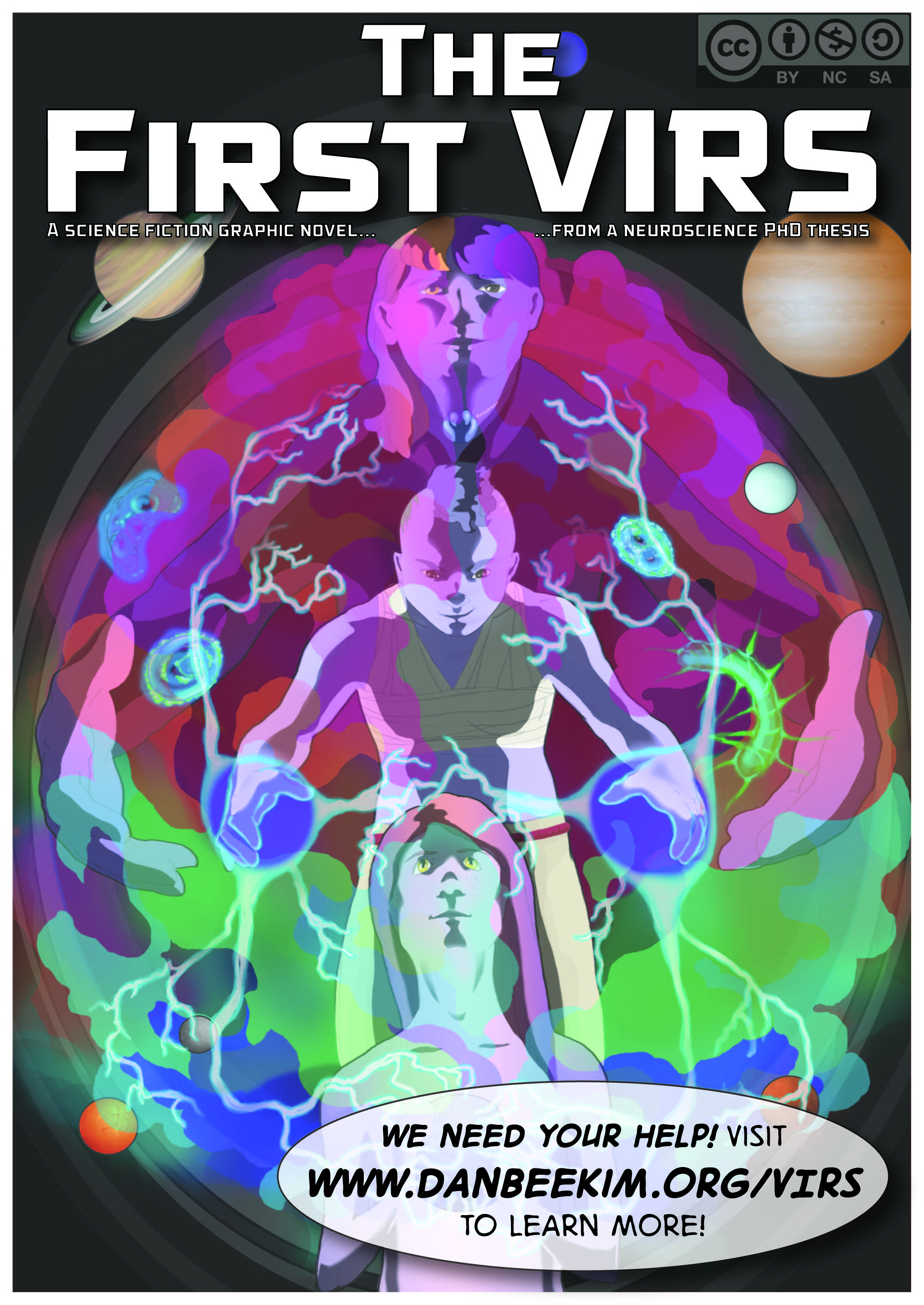
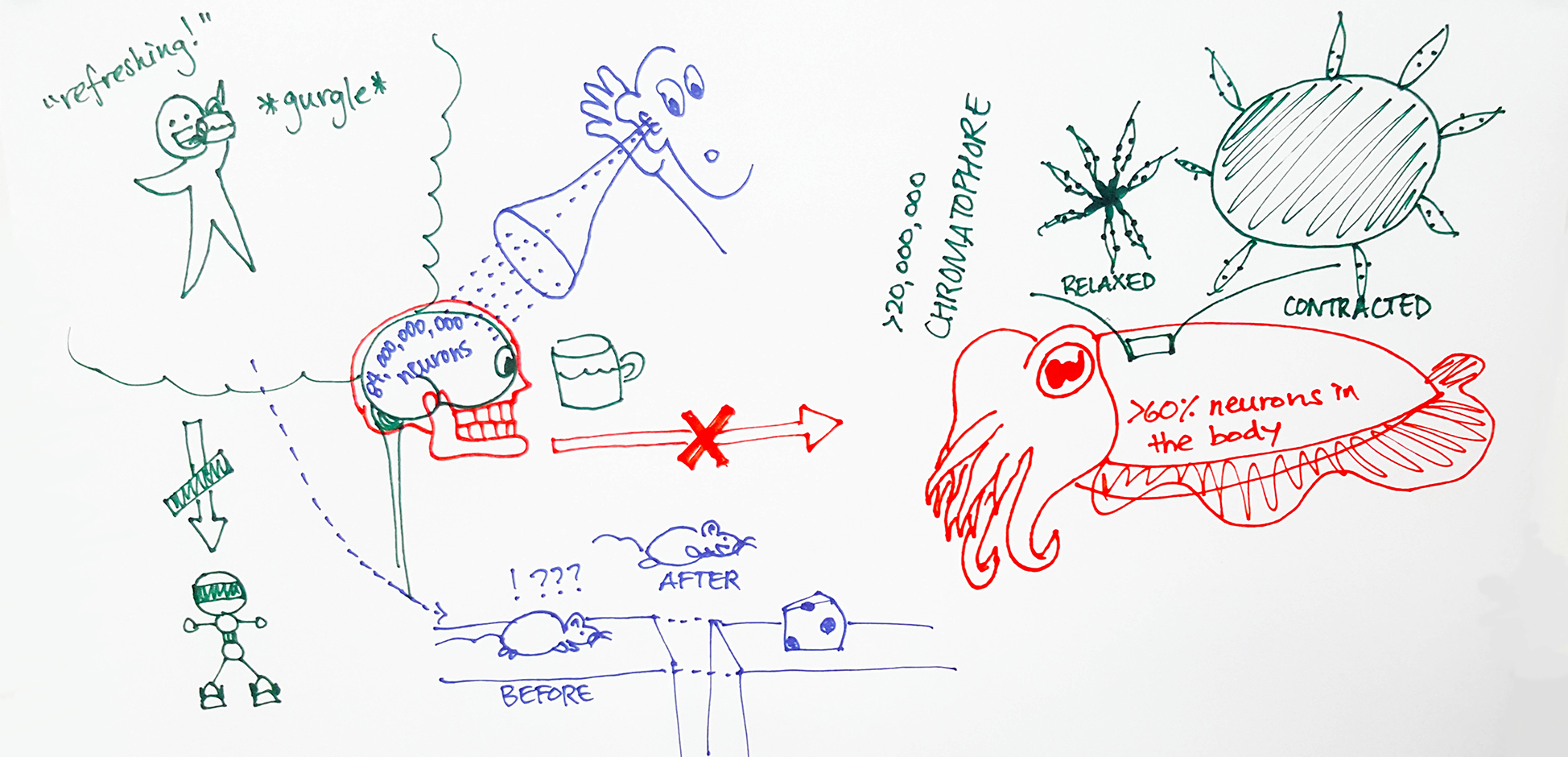
Leave a Comment